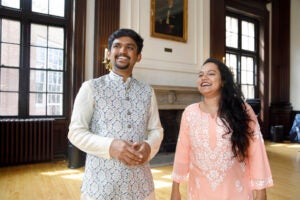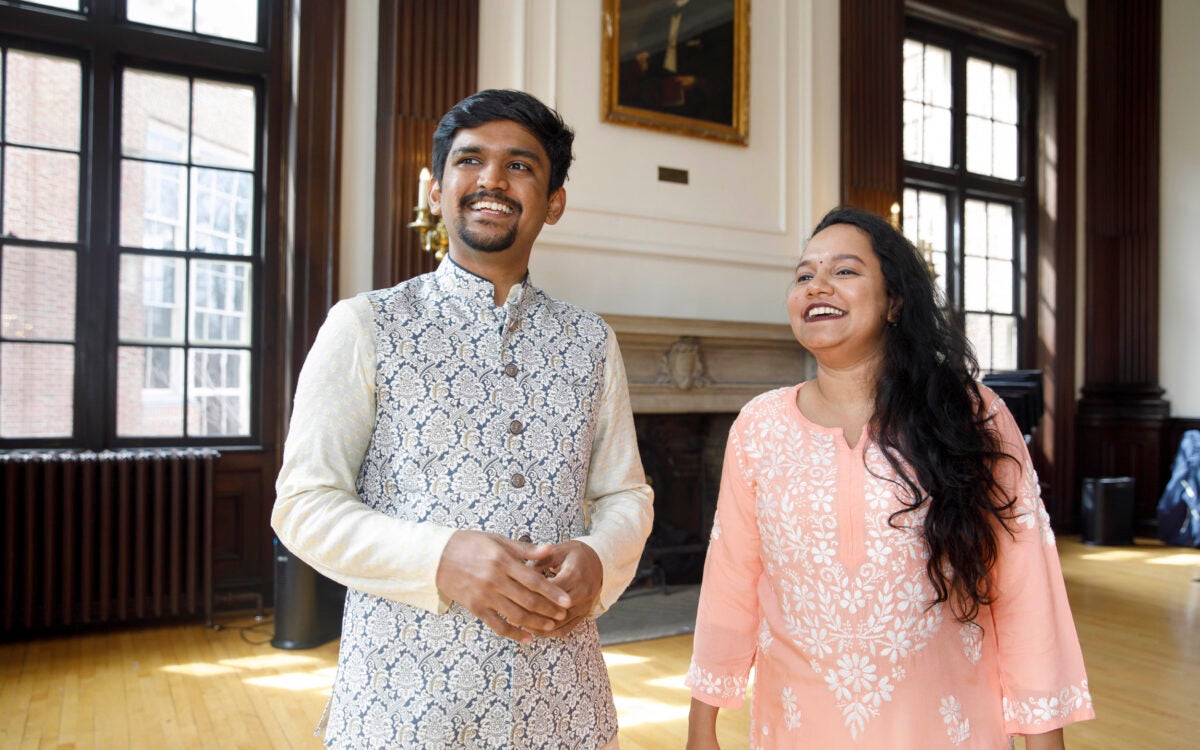Nobel laureate Hubel dies at 87
Helped reveal how the brain processes vision
Harvard Medical School Professor David H. Hubel, whose discoveries in visual processing and development ushered in the modern study of the cerebral cortex and changed the way childhood cataracts and strabismus (“cross-eye”) were treated, died on Sept. 22 of kidney failure in Lincoln, Mass. He was 87.
Hubel, the John Enders Professor of Neurobiology, Emeritus, and longtime research partner Torsten Wiesel shared half of the 1981 Nobel Prize in physiology or medicine for their groundbreaking insights into the structure and function of the visual cortex and the importance of exposure to certain visual stimuli shortly after birth for normal vision development. (The other half of that year’s prize went to Roger Sperry for finding that the two hemispheres of the brain have specialized functions.)
“David was one of the great scientists of his generation,” said Michael Greenberg, Nathan Marsh Pusey Professor of Neurobiology and chair of the Department of Neurobiology at HMS. “His work revealed how the brain is organized to produce visual perception. The insights we have gained from his discoveries resonate to all aspects of sensory perception. Not only were his experimental findings revolutionary, David was also a passionate teacher and a talented communicator. Everyone in the field of neurobiology has been inspired by his achievements.”
A memorial service will be held at the Memorial Church on Nov. 16 at 2 p.m. Interment will take place at a later date at Mount Royal Cemetery in Montreal. The HMS Department of Neurobiology will hold a celebration of Professor Hubel’s scientific achievements next spring.
Memorial donations may be made to a newly established Hubel Memorial Fund.
To read the full obituary, visit the HMS website.




